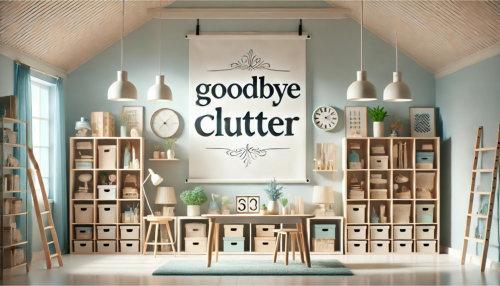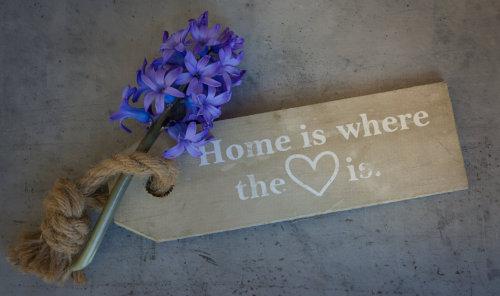Imagine walking into your home, and instead of just seeing the clutter, you hear it. Every
object—the stacks of unread magazines, the extra coffee mugs, the half-finished craft projects—has something to say.
Some whisper, some shout, and some sit there silently, waiting for you to notice them. If your clutter could talk, what would it
say?
1. The Guilty Gifts: “But you have to keep me!”
These are the items you hold onto because someone gave them to you. That sweater from Aunt Linda that never quite fit right, the decorative candle that smells too strong, the book
you have no interest in reading but feel bad letting go of.
What to tell them: “I appreciate the love behind you, but I don’t have to keep every gift to honor the person who gave it. You served your purpose, and now it's time for you to move on.”
2. The Just-In-Case Crew: “But you might need me someday!”
This group is made up of things you don’t use, but maybe you will one day. Extra cables, mystery kitchen gadgets, outdated electronics, and clothes that haven’t fit in years but could come back in style. They convince you they’re useful, even though
they haven’t been touched in ages.
What to tell them: “If I haven’t needed you by now, I probably won’t. And if I do? I’ll find another solution. Goodbye, maybe-someday things.”
3. The Past-Self Relics: “But I used to be important to you!”
These are the items tied to past hobbies, identities, and aspirations. The art supplies from that time you swore you’d learn to paint, the stack of running gear from a fitness phase that faded, the pile of old planners from years gone by. They remind you of who you once were (or who you thought you’d
be).
What to tell them: “I appreciate the role you played in my past, but I’m living in the present. If I’m not using you now, it’s okay to let you go.”
4.
The Sentimental Keepers: “But I hold all your memories!”
These are the toughest ones—the childhood toys, the letters from loved ones, the random ticket stubs and souvenirs that feel like tiny time capsules. You worry that if you get rid of them, you’ll lose the memory, too.
It's okay to keep the most sentimental. Here's what to tell the rest: “Memories live in my heart, not in objects. I’ll keep the most special ones and let the rest go.”
5. The Background Noise: “I don’t belong here, but you haven’t noticed me.”
This is the unnoticed clutter—the random papers on the counter, the extra coffee mugs, the drawer full of takeout menus, the things you never chose to keep but somehow ended up with. They exist, but they don’t add value.
What to tell them: “I didn’t mean to keep you, and I don’t need you now.
Out you go.”
Every item in your home tells a story, but you get to decide which stories stay and which ones need to move on. So the next time you look around and feel overwhelmed, ask yourself:
Do I really want this in my life?
Is this something I love, use, or truly need?
Am I keeping this out of guilt, obligation, or
fear?
Your space should reflect the you of today—not the past you, not the someday you, and certainly not the “I feel bad getting rid of this” you.











